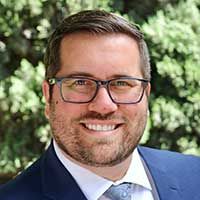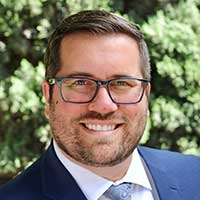The 7 Most Common Social Security Mistakes
Social Security is a complicated element of anyone's retirement plan. Here are the most common mistakes individuals tend to make and how to avoid them.


Profit and prosper with the best of Kiplinger's advice on investing, taxes, retirement, personal finance and much more. Delivered daily. Enter your email in the box and click Sign Me Up.
You are now subscribed
Your newsletter sign-up was successful
Want to add more newsletters?

Delivered daily
Kiplinger Today
Profit and prosper with the best of Kiplinger's advice on investing, taxes, retirement, personal finance and much more delivered daily. Smart money moves start here.

Sent five days a week
Kiplinger A Step Ahead
Get practical help to make better financial decisions in your everyday life, from spending to savings on top deals.

Delivered daily
Kiplinger Closing Bell
Get today's biggest financial and investing headlines delivered to your inbox every day the U.S. stock market is open.

Sent twice a week
Kiplinger Adviser Intel
Financial pros across the country share best practices and fresh tactics to preserve and grow your wealth.

Delivered weekly
Kiplinger Tax Tips
Trim your federal and state tax bills with practical tax-planning and tax-cutting strategies.

Sent twice a week
Kiplinger Retirement Tips
Your twice-a-week guide to planning and enjoying a financially secure and richly rewarding retirement

Sent bimonthly.
Kiplinger Adviser Angle
Insights for advisers, wealth managers and other financial professionals.

Sent twice a week
Kiplinger Investing Weekly
Your twice-a-week roundup of promising stocks, funds, companies and industries you should consider, ones you should avoid, and why.

Sent weekly for six weeks
Kiplinger Invest for Retirement
Your step-by-step six-part series on how to invest for retirement, from devising a successful strategy to exactly which investments to choose.
If you’re older than 55, Social Security planning comes front and center as you think about your retirement income picture.
When should you take it? How do you optimize your benefit? How will it affect your taxes?
According to the Centers for Retirement Research at Boston College, 60% of seniors are applying for benefits before full retirement age. It’s obviously very difficult to navigate the many options to avoid the biggest Social Security mistakes as you are planning your benefit distribution strategy.
From just $107.88 $24.99 for Kiplinger Personal Finance
Become a smarter, better informed investor. Subscribe from just $107.88 $24.99, plus get up to 4 Special Issues

Sign up for Kiplinger’s Free Newsletters
Profit and prosper with the best of expert advice on investing, taxes, retirement, personal finance and more - straight to your e-mail.
Profit and prosper with the best of expert advice - straight to your e-mail.
Here are some of the biggest and most common mistakes people make when taking their Social Security.
1. Turning on Social Security at 62 while you’re still working.
Collecting your Social Security too early is a common mistake. If you have not properly planned for retirement, you might think that taking the government benefit as early as possible would make sense. After all, no one knows how long the benefits will continue and what changes might come in the future.
The problem is that Social Security has stiff consequences for people under full retirement age who are collecting and continuing to work. If you are working and are between 62 and full retirement age and you turn on your benefits, for every $2 you make over $17,640 per year (in 2019), Social Security will temporarily withhold $1 in benefits.
While the benefit is recalculated at full retirement age to make up for the forgone benefits if you claim early, sixtysomethings who are still working should consider waiting to take benefits at full retirement age, when the earnings test is no longer an issue.
2. Not utilizing the restricted application strategy (if you are eligible).
For couples with at least one spouse born before Jan. 2, 1954, you need to be aware of the restricted application strategy. It allows couples to have one spouse claim a spousal benefit while deferring his or her own benefit. You may be eligible to collect that spousal benefit for up to four years while deferring your own benefit, letting it grow to its maximum amount at age 70.
If you are planning to wait until 70 to collect your maximum benefit, you might not consider the restricted application or might not be aware of it. The benefit of this strategy is that you still end up with the maximum benefit at age 70, but you can potentially collect additional spousal benefits while you are waiting to turn on your own benefit. The strategy can be considered for divorced couples as well.
3. Remarrying without understanding the consequences.
If you are currently collecting an ex-spousal Social Security benefit and you remarry, that benefit will cease. Also consider, if your ex-spouse passes away, you will step up to their full benefit amount — a morbid thought but important to know.
Unfortunately, it’s not just about love anymore. You have to consider how the new marriage might impact your Social Security benefits. If you remarry a person who is 10 or 20 years younger than you, you might not qualify for spousal Social Security benefits for quite some time.
Make sure you understand how your remarriage could impact your benefits.
4. Waiting on a spousal benefit until 70.
Maybe you don’t need any extra income, so both you and your spouse are waiting until 70 to start taking Social Security, expecting to receive a higher benefit by deferring. Keep in mind that while the primary worker receives a Social Security deferral increase of around 8% per year by waiting from full retirement age to 70, unfortunately spousal benefits do not receive that same level of increase.
Because spousal benefits do not receive deferral credits, there is less incentive to wait to collect those spousal benefits.
5. Thinking if you were to die at 70 you would have been better off collecting early.
This is not always the case. If you die at age 70, and your spouse lives to age 92, your spouse could be over $100,000 better off with your decision. Even though you never received a nickel, your spouse will have that much more money during the rest of his or her lifetime.
People often forget that when one spouse passes away, the lower Social Security amount disappears. The surviving spouse keeps the higher of the two benefits. The increase in benefits you receive by deferring might not just be for your life but for the life of your spouse as well.
6. Neglecting to plan in case of death of spouse.
Planning for the potential death of a spouse is not a fun topic to discuss, but it can be important in the financial planning process, especially when it comes to Social Security. When one of you passes away, you’re left with only the higher of the two benefits. If this happens later in retirement, it is often not a significant issue. However, early in retirement if one of you passes away, the lower income can become a planning problem. Make sure to address this possibility with your financial professional. Consider other assets you might be able to access in that situation or ways to manage that risk, such as electing to take the joint life option on your pension.
7. Not understanding how Social Security is taxed.
There are certain thresholds where Social Security becomes 50% taxable and where it becomes 85% taxable. It all depends on your “provisional income,” which is your adjusted gross income, not counting Social Security benefits, plus nontaxable interest and half of your Social Security benefits. If your provisional income is $25,000 to $34,000 (for singles) or $32,000 to $44,000 (for married filing jointly), up to 50% of your benefits may be taxable. If your provisional income is more than $34,000 if single or more than $44,000 if married, up to 85% of your benefits may be taxable.
You need to plan your other retirement income sources to keep your entire plan more tax efficient and tax optimized.
It’s also important to consider your tax bracket when deciding when to take Social Security. If you and your spouse are full retirement age, still working, and in a high tax bracket, it might make sense to defer your benefits if you are planning on your tax rate being lower in retirement. Tax planning is an integral component in Social Security planning. Consult with your tax professional to review how your taxes might change in retirement.
Social Security can be a significant income stream in retirement. Make sure you do everything you can to maximize your benefits and avoid potential pitfalls.
Securities and advisory services are offered through USA Financial Securities Corp., Member FINRA/SIPC. A registered investment advisor located at 6020 E. Fulton St., Ada, MI 49301. Sterling Wealth Partners is not affiliated with USA Financial Securities. CA License #0G89727
Investment Adviser Representative of USA Financial Securities. Member FINRA/SIPC A Registered Investment Advisor. CA license # 0G89727 https://brokercheck.finra.org/
Profit and prosper with the best of Kiplinger's advice on investing, taxes, retirement, personal finance and much more. Delivered daily. Enter your email in the box and click Sign Me Up.

Scot Landborg has over 17 years of experience advising clients on retirement planning strategies. Scot is CEO and Senior Wealth Adviser for Sterling Wealth Partners. He is host of the retirement planning podcast Retire Eyes Wide Open. Scot is a regular contributor to Kiplinger.com and has been quoted in "U.S. News & World Report," Market Watch, Yahoo Finance, Nasdaq and Investopedia. He also formally hosted the nationally syndicated radio show "Smart Money Talk Radio."
-
 How Much It Costs to Host a Super Bowl Party in 2026
How Much It Costs to Host a Super Bowl Party in 2026Hosting a Super Bowl party in 2026 could cost you. Here's a breakdown of food, drink and entertainment costs — plus ways to save.
-
 3 Reasons to Use a 5-Year CD As You Approach Retirement
3 Reasons to Use a 5-Year CD As You Approach RetirementA five-year CD can help you reach other milestones as you approach retirement.
-
 Your Adult Kids Are Doing Fine. Is It Time To Spend Some of Their Inheritance?
Your Adult Kids Are Doing Fine. Is It Time To Spend Some of Their Inheritance?If your kids are successful, do they need an inheritance? Ask yourself these four questions before passing down another dollar.
-
 The 4 Estate Planning Documents Every High-Net-Worth Family Needs (Not Just a Will)
The 4 Estate Planning Documents Every High-Net-Worth Family Needs (Not Just a Will)The key to successful estate planning for HNW families isn't just drafting these four documents, but ensuring they're current and immediately accessible.
-
 Love and Legacy: What Couples Rarely Talk About (But Should)
Love and Legacy: What Couples Rarely Talk About (But Should)Couples who talk openly about finances, including estate planning, are more likely to head into retirement joyfully. How can you get the conversation going?
-
 How to Get the Fair Value for Your Shares When You Are in the Minority Vote on a Sale of Substantially All Corporate Assets
How to Get the Fair Value for Your Shares When You Are in the Minority Vote on a Sale of Substantially All Corporate AssetsWhen a sale of substantially all corporate assets is approved by majority vote, shareholders on the losing side of the vote should understand their rights.
-
 How to Add a Pet Trust to Your Estate Plan: Don't Leave Your Best Friend to Chance
How to Add a Pet Trust to Your Estate Plan: Don't Leave Your Best Friend to ChanceAdding a pet trust to your estate plan can ensure your pets are properly looked after when you're no longer able to care for them. This is how to go about it.
-
 Want to Avoid Leaving Chaos in Your Wake? Don't Leave Behind an Outdated Estate Plan
Want to Avoid Leaving Chaos in Your Wake? Don't Leave Behind an Outdated Estate PlanAn outdated or incomplete estate plan could cause confusion for those handling your affairs at a difficult time. This guide highlights what to update and when.
-
 I'm a Financial Adviser: This Is Why I Became an Advocate for Fee-Only Financial Advice
I'm a Financial Adviser: This Is Why I Became an Advocate for Fee-Only Financial AdviceCan financial advisers who earn commissions on product sales give clients the best advice? For one professional, changing track was the clear choice.
-
 I Met With 100-Plus Advisers to Develop This Road Map for Adopting AI
I Met With 100-Plus Advisers to Develop This Road Map for Adopting AIFor financial advisers eager to embrace AI but unsure where to start, this road map will help you integrate the right tools and safeguards into your work.
-
 The Referral Revolution: How to Grow Your Business With Trust
The Referral Revolution: How to Grow Your Business With TrustYou can attract ideal clients by focusing on value and leveraging your current relationships to create a referral-based practice.